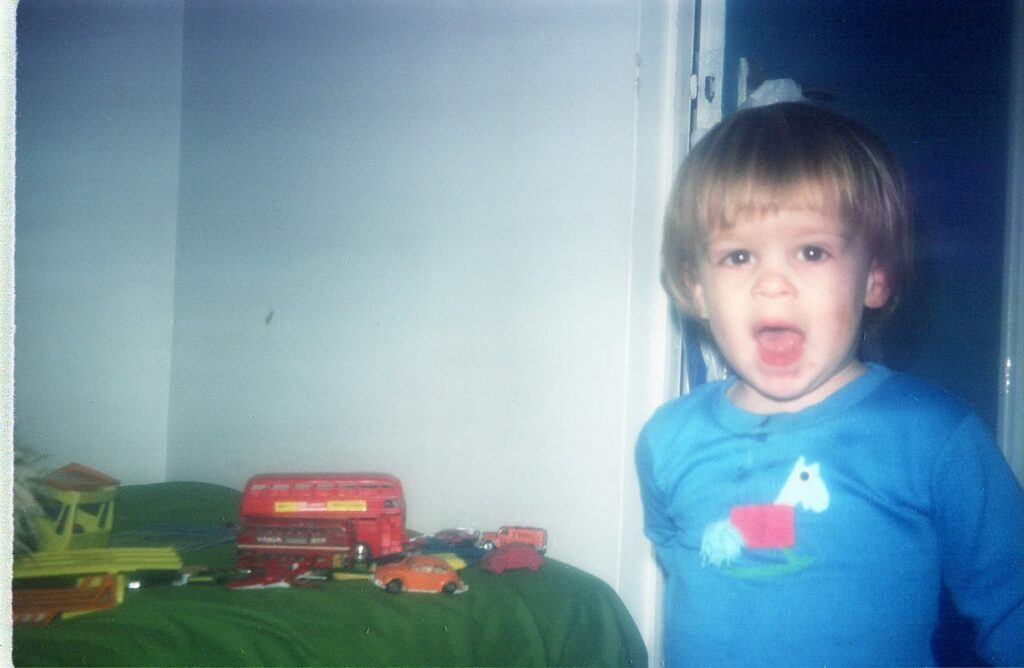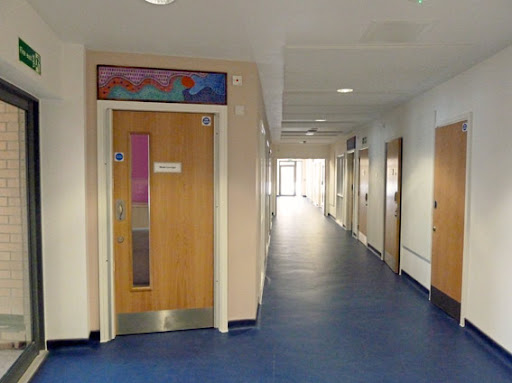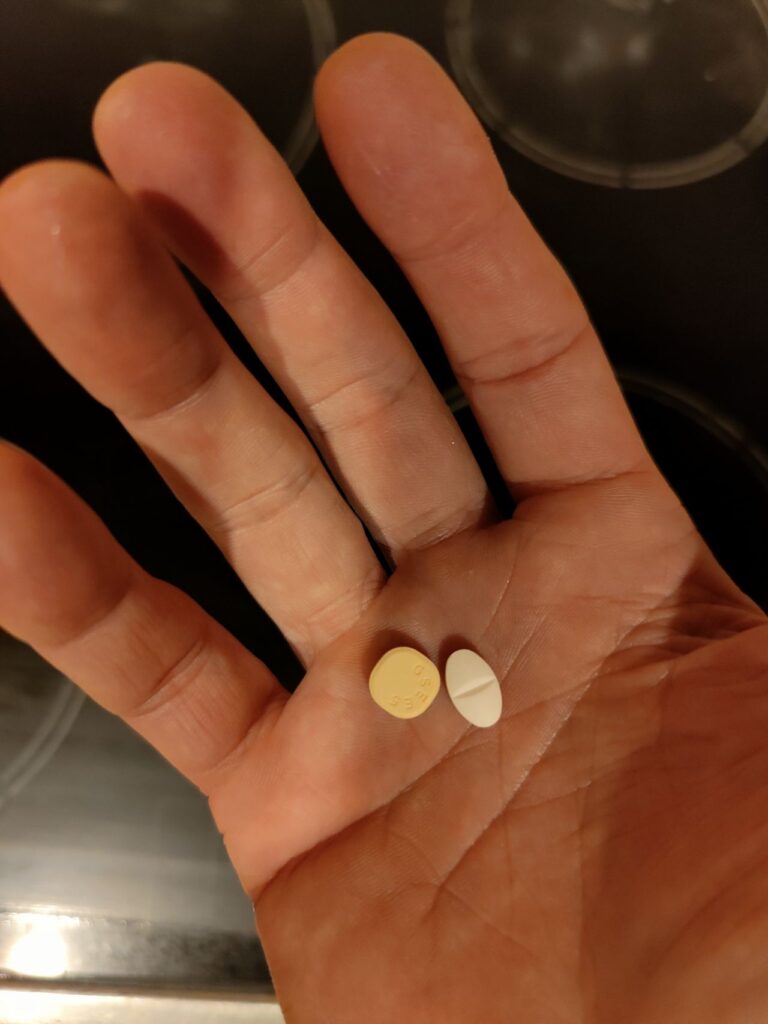Trigger Warning
Before we start: This post discusses sensitive topics like self-harm, depression, and suicidal thoughts. I won’t go into graphic detail, but I want to flag it in case you’d prefer not to continue.
Where It Began

Lil’ Andy (either late 70s or early 80s)
I grew up in a loving, supportive family. And for a long time, that made me feel guilty about my depression. If nothing ‘bad’ happened to me, how could I be struggling?
But as I understand now, mental health doesn’t discriminate. Looking back, it wasn’t that I was always withdrawn or sad.
It was more a constant thread of sadness, of feeling like an outsider, and of finding safety in my own company and imagination.
The real trouble started in my mid-teens, though I didn’t realise it at the time.
Hospital

Highfield Unit – Oxford
When I was 17 I started self-harming.
Cutting a long story short, that same year I ended up in a psychiatric unit for young people as I was speaking about suicide.
I spent maybe a week as an inpatient there, some time as a day patient, then eventually an out-patient.
Strangely – or maybe not- it was the first place I ever felt a real sense of belonging. Remember – this was way before the internet. I didn’t even know other people self-harmed or experienced dark thoughts.
The experience actually made me feel very grateful – the other patients included a schizophrenic boy, a girl who had been abused by family members, a girl suffering from anorexia and bulimia. And there was me with none of those experiences.
This was when I was first diagnosed as having ‘depression’.
I’ll always admire how my parents handled it.. Not only did they have a son talking about some very dark stuff, but they had no easy access to information and support.
At the time, the psychiatrist at the hospital wanted to put me on Lithium but the idea of being on meds freaked me out.
Top tip
Mental health can affect anyone. Don’t ever feel guilty if you feel there’s no reason for you to be depressed.
Into Adulthood
I’m having to compress a lot into this page – I have a very long mental health history but I just want to give you an idea of what came before where I’m at now.
Entering adulthood my alcohol abuse continued (as a teen, I’d discovered alcohol and it felt like finding a lost friend) and I never did much to tackle my mental health issues.
In my early 20s I became quite a mess – issues with anger, a spiraling alcohol problem, and being signed off work long term with depression and real issues and anxiety about even going out.
So around 1999-2000 I first went on meds. And they messed me up badly. When I came off them, I suffered horrendous withdrawal.
In 2000 I stopped drinking.
Top tip
Alcohol just makes mental health issues worse. It amplifies feelings and emotions and makes behaviour worse.
It’s freeing being sober and more in control.
It’s also safer – being drunk and depressed is a dangerous concotion.
Bipolar..
Late 20s to early 30s things started going wrong in my head. I’m a bit rubbish with dates but probably around 2010-11, one of the summers, I had my first ‘mixed episode.’ A mixed episode is something that happens with Bipolar disorder where you’re having the horrendous depression (and in my case at the time, almost constant suicidal ideation), with intense energy (meaning I could barely sleep).
I honestly felt like I was losing my sanity in those weeks.
I’d had enough of it so I went to a GP and was prescribed anti-depressants.
Well, that kinda helped. For a while.
Then we upped the dosage. And that kinda helped a little bit more.
Then I was still struggling with horrific depressive episodes and mood swings. I remember one day – I woke up – the weather was rainy, grey, miserable. I had suicidal ideation thoughts all morning.
In the afternoon – it was really sunny and bright and suddenly I was as high as a kite.
Not only were these changes and my behaviour impacting me, but also my partner at the time (with hindsight, I just didn’t appreciate that in the moment), and everything around me. Imagine being around someone who you just don’t know how they’ll be day to day or even hour to hour – far from easy.
I ended up going back to the GP – and – in a very lucky moment – had a GP who spent some proper time with me and saw past what I was ‘presenting’ (what I mean by that is, even in my depressive episodes, I could be very articulate and eloquent about describing my feelings).
Top tip
Be your own advocate – mental health services are underfunded. If you don’t feel you can be assertive enough, get a friend, family member or loved one to join you at appointments.
Lightbulb Moment

Two little pills…
When he said ‘bipolar’, it wasn’t a shock, but it changed everything.
I’ll always be hugely grateful for him as that moment – and the subsequent referral – changed my life (indeed, I think had I not been diagnosed, I wouldn’t be here today).
A couple of months later I was diagnosed with bipolar by a psychiatrist.
I could then understand more about my moods, especially my ‘rapid cycling’ (i.e. being up/down even in the same day – exhausting for not just the person but also those around them). Things began making sense:
- The ups and downs
- The intensity of the feelings
- Why anti-depressants on their own weren’t solving things
I got put on mood stabilisers to supplement the anti depressants. It took experimenting with three different ones (and tons of side effects) before we settled on a mix that worked for me.(And yes, I’ll probably be on them for life.)
Top tip
There is no shame in taking medication. You’d do it for something physical.
It doesn’t make you weak taking it.
Medication Helped But Therapy Taught Me How To Live
Again, I’m rubbish with dates but I think around that time I started counselling again. I’ve done tons since with various counsellors and coaches so I often have to remind myself how tough it was at first.
Being open, vulnerable, and exposed is tough. It’s challenging. It’s eye opening but often not nice.
But it pays off.
Top Tip
The style of a counsellor doesn’t matter – rapport, understanding and results does.
My Journey Since

Long distance running ..
Being outside..
A natural anti-depressant!
I’ve massively stripped down my experiences to fit it on this page. Over the years I’ve invested a lot of time, effort and money into improving my mental health. For me this means:
- No alcohol
- Taking meds
- Exercise (for me – running)
- Meditation
- Diet (avoiding refined sugar in particular)
- Talking (e.g. counselling, coaching)
- Learning
- Knowing my warning signs and triggers
I’m also very fortunate as I have a loving, understanding wife, three amazing kids, a job I love, and my physical health. Things I don’t take for granted.
I’m not ‘fixed’.
I never will be. Nobody is ‘fixed’ or perfect anyway.
But I’m alive – as a bipolar sufferer I’m proud of that – there’s been so many times which could have gone a different way and I wouldn’t be writing this right now.
I have a lot in my life that I never imagined I would – and I feel incredibly grateful for them.
Top tip
Just like life, improving your mental health is a journey not a destination.
By working on it you’re showing courage and strength.
Talking
In the last few years I’ve been more and more open about my own mental health struggles. I’m fortunate – I’m still alive, and I’m comfortable talking about the topic.
So I’ve made a point of doing things like presentations at work, writing about it on a blog and Linkedin – doing my best to stimulate thought and conversations. I have three awesome kids and I want to show them it’s OK to struggle and it’s OK to talk about it.
The more I’ve talked, the more I’ve found that so many people you’d think are ‘ok’ aren’t.
As a society we’ve come a long way since I was in hospital in the early 90s. But there is still a degree of taboo about mental health. And there really shouldn’t be.
So many people are suffering in silence. Our society shouldn’t tolerate this.
Thank you for reading. Whoever you are—you’re worthy, you’re loved, and you matter.
If you’re struggling, please, reach out. People want to help. You’re not alone (even if you think you are).
Final thoughts
You know what I’ve eventually accepted over the years?
Nobody really has their shit together.
Nobody is perfectly happy or confident.
We’re all just doing our best and putting on acts.
Be kind to yourself and stop comparing yourself to others.
